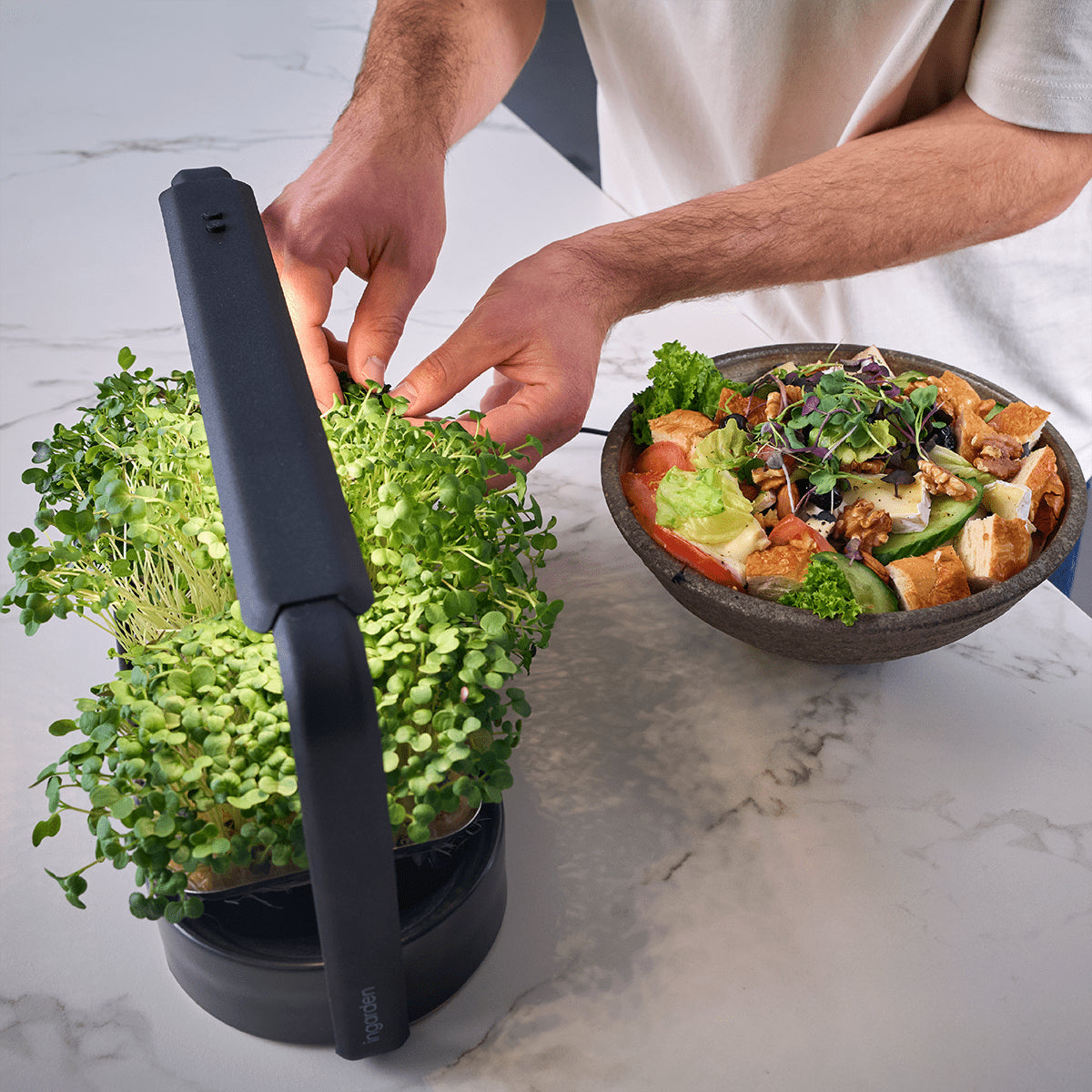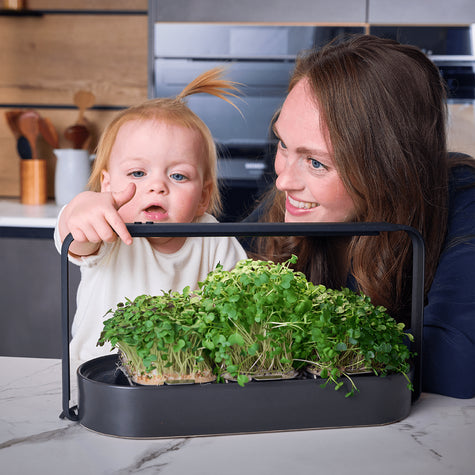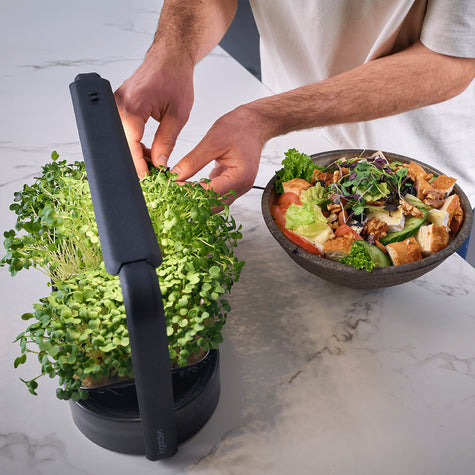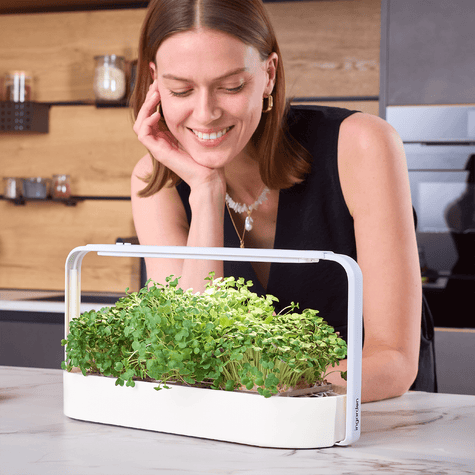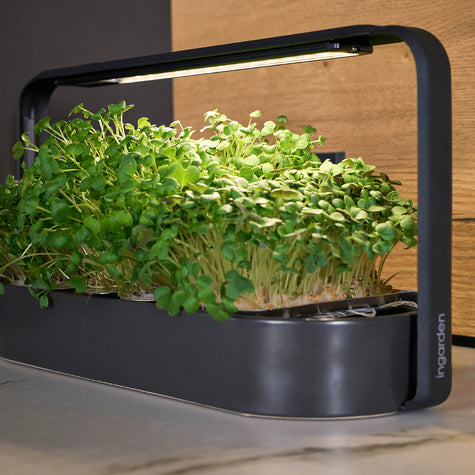How can you best reduce waste at home? At ingarden, sustainability is our top priority. That's why we're committed to helping you reduce your home waste. Our passionate team of environmentalists has put together a special guide with six simple steps to transform your home into a green paradise.
6. Grow herbs at home
From basil to mint, we're all used to fresh herbs from the supermarket. However, if you regularly buy small quantities, you're usually dealing with a lot of plastic packaging. A simple way to reduce waste at home is to grow your own herbs. Basil plants need plenty of water but are inexpensive to buy and easy to care for. Make sure to pick the lower leaves so that the larger leaves at the top of the plant can get the light.
5. Reusable materials
At ingarden, we're proud to be plastic-free. Being mindful of plastic is the first step towards reducing waste at home. Instead of buying single-use shampoo, soap, or conditioner, keep the same bottle and refill it. Swap plastic bottled water for your own sparkling water system. It's difficult to avoid plastic entirely, but reusing and recycling plastic are good first steps in the right direction.
4. Switch to paperless billing
Let's be honest: How many letters end up straight in the trash? Reduce waste by having your regular invoices and other mail sent via email. Many companies offer a paperless invoicing solution.
3. Start composting
Did you know that 17% of all food produced is thrown away? A great way to solve this problem at home is composting. Place a compost bin under the sink. Put leftovers, tea bags, or other spoiled food items in the compost bin. You'll be amazed at how much less waste your household produces.
2. Buy, sell, and reuse clothes
Every year, the fashion industry generates approximately 100 million tons of textile waste. Help solve this problem by reusing unwanted clothes as cleaning rags; alternatively, try selling old clothes online or hosting your own flea market. Consider buying secondhand clothes.
1. Grow microgreens at home
Did you know that microgreens contain up to 260 times more nutrients per gram than fully grown vegetables? Microgreens are tiny plant seedlings packed with beneficial nutrients. Growing microgreens at home is a smart way to eat a nutrient-rich diet while reducing plastic waste and supermarket trips. From cress to red cabbage, with ingarden you can grow up to 1,000 microgreens per week. The automatic watering and LED lighting system allows you to effortlessly grow microgreens 365 days a year.



